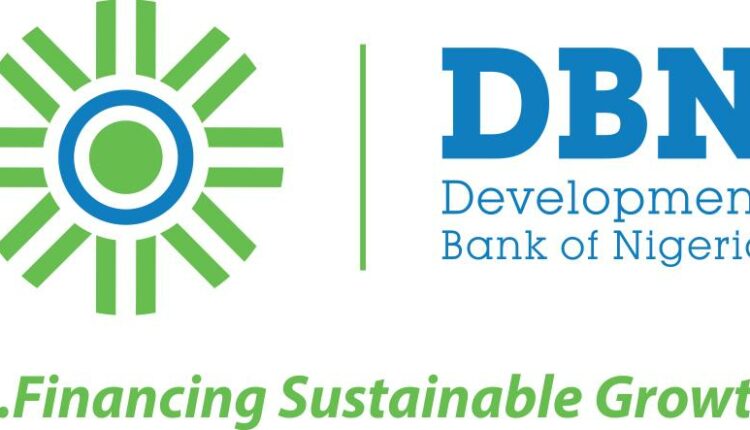The Development Bank of Nigeria (DBN) says it plans to disburse N150 billion to Micro Small and Medium Enterprises across the country.
The Chief Economist in DBN, Prof. Joseph Nnanna, said this in an interview with the News Agency of Nigeria on Monday in Abuja.
Nnanna said that the disbursement would be done through participating financial institutions for onward lending to MSMEs across various sectors of the economy.
According to him, the objective is to enlist 120,000 MSMEs in 2023.
Read Also: PHOTOSNEWS: DBN, KCCI hold stakeholders conference for MSMEs in Kano

“I think we are on track to get there so we have a target to disburse around N150 billion this year and so far we are making some good progress but the year isn’t over yet and the state of the economy is a bit in flux.
“A lot of Nigerians are challenged, a lot of businesses are challenged, the interest rate is increasing and as a result, we know that these business owners will need some able room to breathe,’’ Nnanna said.
Nnanna, however, said that DBN had recorded growth in the MSME sector with the increasing employment rate.
”If you look at what we have done across the country, we have been able to impact over 300, 000 MSMEs, and this cuts across trade, education, manufacturing, agriculture, and ICT.
Read Also: DSS uncovers plans by politicians to mobilize student leaders, others for violent protests
“By and large we have seen some growth across the MSME space because we measure the job creation levels of the money we disburse through our participating financial institutions.
“Over 240, 000 jobs have been created so far and that is commendable,’’ he said.
Nnanna urged the participating financial institutions to provide the needed aid for MSMEs to continue to grow amidst the prevailing economic challenges in the country.
“We know we are trying to create jobs and we know that the economy is a bit challenged now, the high-interest rates and uncertainty with the agriculture sector given that the Cameroon government is going to open up the dam.
“This might increase flooding risks which will basically damage a lot of crop production, and this is the peak when we should be harvesting crops.
“Consequently, I sincerely believe there is probably more now than ever development financial institutions have to spring into action to come to their aid.
“So our commercial banks and microfinance banks will surely intervene and support those actors in their space who need some cushion to continue to grow,’’ Nnanna said.
The economist said that DBN would strengthen collaborations with stakeholders in the sector to achieve its target of financial inclusion.
“With support from the regulators, with support from our partner institutions; we need support broadly because, in the end, I will restate that we suddenly need to collaborate more to achieve inclusive growth.
“Without collaboration and if we are competing among ourselves, it is never going to work because somebody will feel cheated whether it is in the MSME lanes, commercial or microfinance bank lanes, or even the regulators will feel like you guys are breaking the rules to achieve some targets.
“So that is why we have to collaborate, we have to keep on revisiting the things that are working and tweaking them to ensure they are fit for purpose that ultimately becomes the key to success,’’ Nnanna said.
Read Also: FG unveils 4-point agenda to improve healthcare delivery
He said that DBN’s Financial Inclusion Project with Ubola Rural Community Foundation targets to reach more rural Nigerians with a simple financial tools approach and create a financially inclusive sustainability system.
NAN recalls that in Feb. DBN in collaboration with Ubola Rural Community Foundation commenced the Financial Inclusion Project in the North East region.
The Executive Chairman of URCF, Mr Musa Etubi said that the project targets 1000 rural beneficiaries on financial inclusion.
Etubi said that over 73 per cent of the population financially excluded live in rural areas.
While expressing hope that the FIP project would be scaled up to other geopolitical zones, Etubi said that so far. 110 indigent farmers and petty traders were supported financially and materially through the initiative.
According to him, materials such as water pumping machines for agricultural irrigation and improved seedlings with organic fertilizer that also serve as pesticides were provided to improve and increase farm yield.
“The traders, who are mainly women and girls were also sensitized and provided with starter packs for their petty trading,’’ he said.
NAN



Comments are closed.